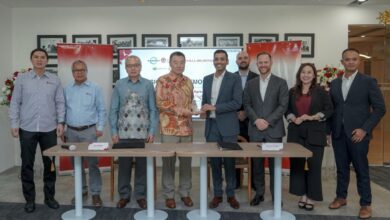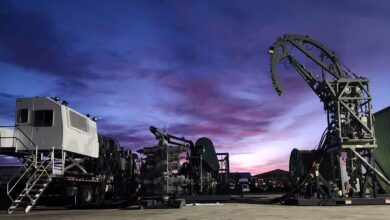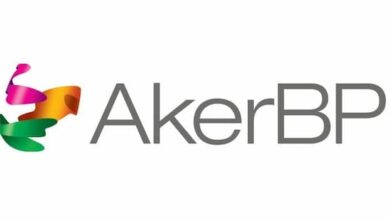Panel: Companies look to creative solutions to meet labor needs in deepwater
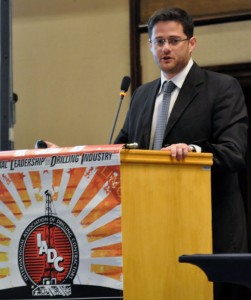
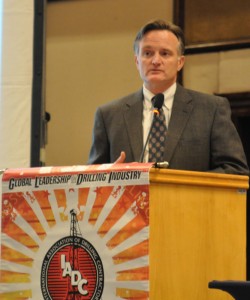
By Joanne Liou, editorial coordinator
Employing a fresh pool of talented people to meet the industry’s increasing labor demands is part of industry’s proactive approach to attract skilled labor, but it will take creative solutions. “We have to look at it as a community,” Bob Newhouse, director – learning and development, Noble Drilling Services, explained. “If I’m living in a neighborhood and I want my neighborhood to be safe, I can’t just focus on my house. If the rest of my neighborhood is unsafe, my home will not be safe.”
Mr Newhouse was among three other panelists – Flavio Zimermann, manager of operational safety of rigs, Petroleo Brasileiro; Mardonildo Filho, HR manager, Transocean; and Comandante Leonel Bahiense – who shared insights and strategies on how the industry can fulfill regional personnel demands at the IADC International Deepwater Drilling Conference and Exhibition in Rio de Janeiro on 17 April. The session was moderated by Alexandra Celano, HR manager, Ensco.
Based on Noble’s calculations, the industry is expecting 145 newbuilds, requiring more than 80,000 new rig staff in the next six years. “We’re not hiring for easy-to-run equipment,” Mr Newhouse said. “We have very complex, very dynamic equipment performing in environments we’ve never been in before.”
Competition for labor also runs high, challenged by nationalization issues and heightened regulatory requirements. Noble is approaching the challenge by hiring and expecting excellence from the start. The company focuses on attracting the right employees and giving them opportunities to learn, develop and grow to become valuable team members, Mr Newhouse explained.
Transocean is taking a similar approach to develop its own labor capacities instead of looking elsewhere. “You can hire. You can have the correct profile, but if you don’t have a good development program to put them on a career path, everything goes down the drain,” Mr Filho said. Maintaining close relationships with educational institutions helps channel potential talent to specific positions, he added.
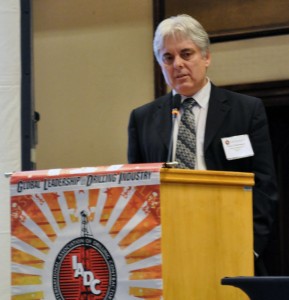
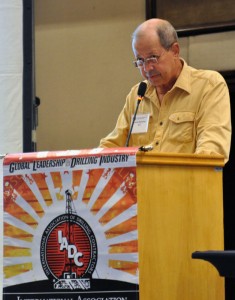
Since 2003, Petrobras has used PROMINP, Brazil’s National Oil and Natural Gas Industry Mobilization Program, to maximize the participation of local companies in all its projects. The course used in PROMINP was integrated with Petrobras’ program for rig operators to include theory and practical training, Mr Zimermann explained.
The program is organized specifically to meet the needs of individual qualification levels. Training centers located across Brazil cater to different levels – roustabout, derrickman and driller, he said. PROMINP is a learning process, and adjustments have been made to qualifying tests and technical high school specialties. “Petrobras and companies are getting better at attracting people for the market,” Mr Zimermann stated. “We cannot just leave it alone. We need to train people because our next move is to build 28 rigs in Brazil.”
Looking to another industry as a source of skilled labor, Mr Bahiense, a formal naval officer, explained how qualified veterans from the navy can help fulfill the people demand. The navy’s sense of hierarchy and discipline reflects in safety measures that parallel those within the drilling industry, he said.
“Qualified professionals with experience at sea retiring after 35 years of service have the capability to continue their profession for 10 to 15 years. Those people have been prepared to become leaders,” Mr Bahiense said.
One of the biggest obstacles of recruiting from the naval industry is making the right connections. “Both parties do not know each other,” he said. “The difficulty is to reach them and let them know what is offered and what is expected. You will need companies to do the research.” Mr Bahiense suggested using headhunters, social media and direct communication with the navy.

